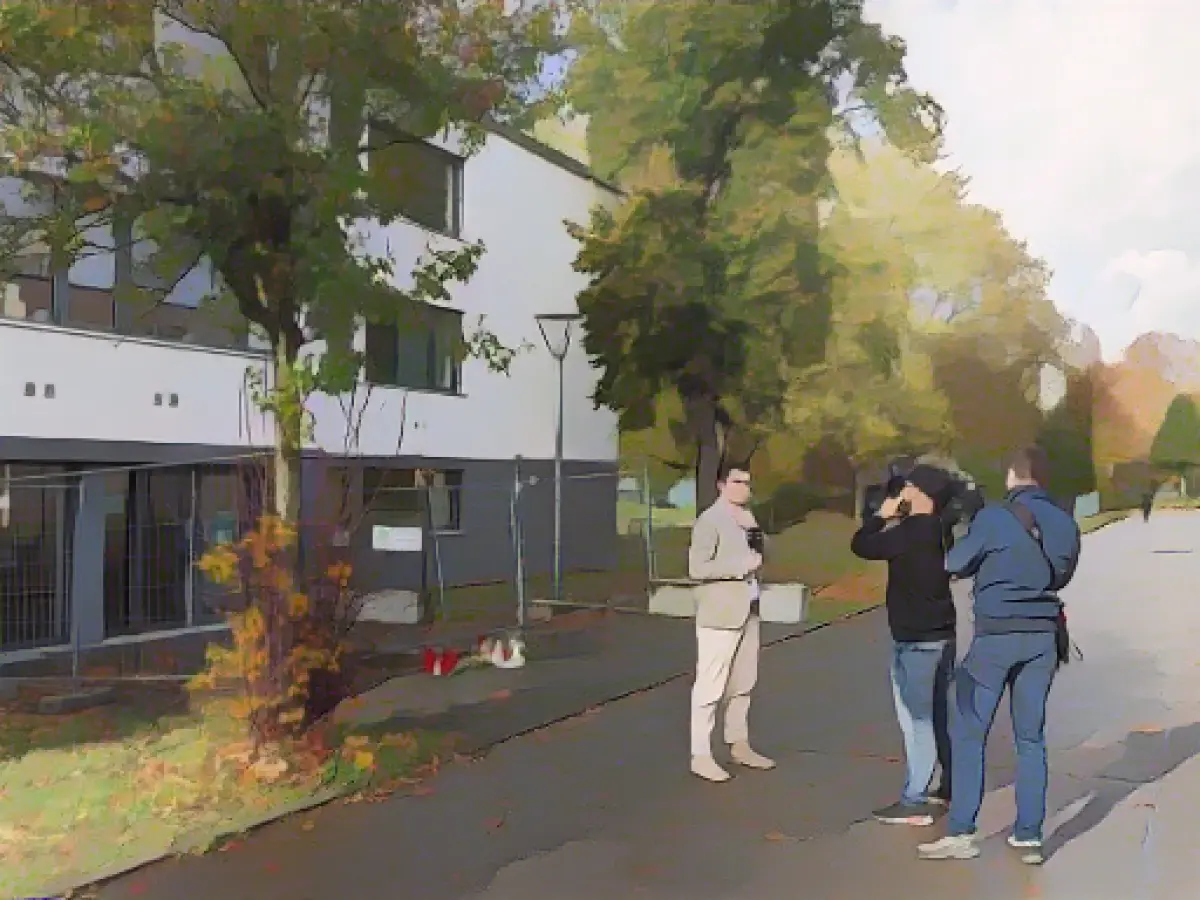Schoolyard Tragedy: Navigating Juvenile Justice Rules in Germany
Following the shocking incident involving a 15-year-old suspect in Offenburg, the youngster is currently under investigation for the fatal assault on a fellow student. This case falls under the strict regulations governing prosecutions for minors, as explained by Iris Janke, head of the Offenburg public prosecutor's office, in a recent briefing.
Crucial guidelines, such as restrictive information policies for prosecutors, along with assessing the student's maturity and responsibility, are crucial components of juvenile investigations. In the wake of this gravity-laden accusation, an expert will examine the suspect's maturity and mental state, and determine if the minor possesses sufficient understanding to grasp the gravity of the alleged actions.
If the alleged attacker is found guilty, the youngster could face a maximum ten-year sentence, as per juvenile criminal law according to Janke.
Holding authority, the German youth is presently detained on charges of manslaughter, following an incident last Thursday where he allegedly entered his classroom and opened fire, hitting his classmate with two rounds from a handgun.
Strict information policies in place against minors during the investigation serve the dual purpose of maintaining fairness and avoiding potential witness influences. While this juvenile's legal definition was established at 15, the maturity and mental state at the time of the crime are equally significant in the German juvenile justice system.
When it comes to finding a balance between punishment and rehabilitation, Germany's juvenile justice system is distinct. Juvenile offenses and sentencing are rooted in the Jugendgerichtsgesetz (Youth Courts Act, JGG) that prioritizes learning and character development over sanctions.
On the Subject of Maturity
Germany recognizes children as juveniles between the ages of 14 and 21. The court evaluates the maturity of the juvenile based on their socio-cultural background and emotional and psychological maturity at the time of the crime. This assessment aids in determining whether the teen is better suited to the justice system for younger people or an adult court system.
Sentencing Principals
The primary intention of the German juvenile justice system is to rehabilitate and educate offenders, rather than punish. Institutionalized in juvenile facilities like the Neustrelitz Youth Prison, vocational programs and educative opportunities such as woodworking, metalworking, cooking, and farming promote empathy, independence, and responsibility.
Waiver of Minors to Adult Courts
As per the German Juvenile Justice Act, minors cannot be waived to the adult court system for ages 14-18. There are only rare circumstances that allow for court intervention that suggests the juvenile shoulded be considered an adult as per their moral and psychological development.
Special Investigation Report
As mandated by section 15 of the Juvenile Justice Act, Special Investigation Reports detail critical aspects of the offense, its gravity, and character, as well as whether society requires protection from the accused juvenile. This information helps avoid mechanical categorization and ensures that transferring juveniles to adult courts remains an informed and thoughtful decision.
Mental Health Considerations
Recent instances of violence in Germany have compelled authorities to scrutinize mental health. Although these incidents do not directly relate to juvenile justice, they underscore the broader mental health discourse in Germany.
Legal Representation and Sentencing Discretion
Juveniles in Germany are afforded legal representation, guaranteeing protection of their rights throughout the investigation and sentencing process. Courts also retain discretion to diverge from mandatory sentencing provisions while considering essential factors like the juvenile's personal circumstances and the potential for rehabilitation.








